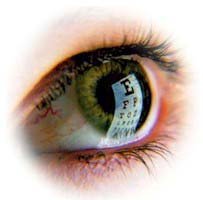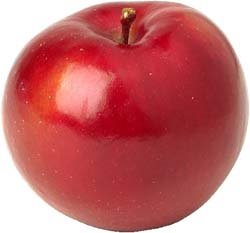The Effects of Sodium on Blood Pressure
Gwendoline Gould
Usually, low sodium diets are recommended for those who suffer from problem of high blood pressure. Blood pressure is the force exerted on artery walls when the heart is beating and when it is at rest. The higher number is the "Systolic" pressure and is the pressure exerted on artery walls when the heart is in the contracting phase. The lower number is the "Diastolic" pressure and is the pressure exerted on artery walls when the heart is in the resting phase.There are actually two types of high blood pressure. However, most people suffer from primary high blood pressure. In secondary high blood pressure, usually something else causing it, like an overactive thyroid gland.
The higher Blood pressure is considered high if the upper number (systolic pressure) is above 140 and the bottom number (diastolic pressure) is above 90 and stays there. Hypertension is another name for high blood pressure.
There are good biological reasons why sodium intake might affect blood pressure, mainly through its effects on the kidneys. When the kidneys want help they have the ability to raise your blood pressure -- the sodium leaves faster when they do that. For some, too much sodium in the diet may contribute to high blood pressure and fluid retention and higher risk for heart attack. People with hypertension, or high blood pressure, are the ones more likely to develop these diseases.
In general, evidence points towards salt intake being an important cause of high sodium levels leading to hypertension, high blood pressure, heart disease as well as kidney stones.
Sodium is needed by the body in small quantities but too much sodium is associated with raised blood pressure, which is a risk factor for heart disease and stroke. Cutting back on sodium can lower the risk of high blood pressure and other heart diseases.
Salt is not sodium, but has a lot of sodium in it. A low sodium diet limits the intake of salt to not more than two grams, which is half the average amount normally consumed. Salt is very desirable in the kitchen for its ability to enhance the flavours of foods and to add that salty "zing" to which we have become accustomed.
You can avoid adding salt to food on the table and eliminate fast foods and pre cooked foods -- known to have very high levels of sodium. We may not be aware, but many canned and precooked food also contain a certain amount of sodium, although they may not appear to be salty. A low sodium diet can also be maintained by not adding salt in your food. Salt added to food at the table constitutes only 20% of salt consumed in the diet.
A person with high blood pressure should consult a doctor to see how much sodium should be consumed daily. Check with your healthcare practitioner before using a salt substitute.
Watch out for "hidden" salt, found in butter flavorings, seasonings, tomato sauces, condiments and canned foods. All kinds of sauce and ketchups, salted biscuits, chips, nuts and baking soda also contain high sodium that are harmful to health.
You can substitute salt with herbs or spices and also with lemon juice. However, very low sodium diets are unpalatable and sodium restriction should never be at the expense of the patient's overall nutritional status.
The cause for high blood pressure in the primary form cannot be determined, but, while the cause may not be known, the treatment can still be effective. Basic Rules for Controlling High Blood Pressure: Adjust your diet Maintain a healthy weight Low salt, low sodium diets are a sure way to help control high blood pressure. Exercise Take medications as prescribed.
Gwendoline Gould is the author of the blog Eating a Healthy Diet. For some people, too much sodium in the diet may contribute to high blood pressure and fluid retention and a higher risk for heart attack. Sodium is needed by the body in small quantities but too much sodium is associated with these symptoms. If you need to switch to low sodium foods, get instant access to 177 plus of the most delicious low Sodium recipes available. Start living the live you deserve. http://tinyurl.com/23ws7a
About the Author
Gwendoline Gould is the author of the blog Eating a Healthy Diet. Sodium is needed by the body in small quantities only. Instant access to the most delicious low Sodium recipes available. Start living the live you deserve. http://tinyurl.com/23ws7a




No comments:
Post a Comment